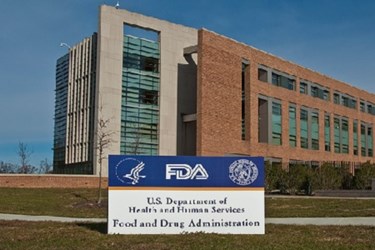FDA Issues Two Draft Guidances On Medical Product Communications
By Jof Enriquez,
Follow me on Twitter @jofenriq

The U.S. Food and Drug Administration (FDA) has released two new Q&A-format draft guidances on medical product communications. The first one deals with communication by firms of health care economic information (HCEI) to payors, including about investigational drugs and devices that are not yet approved or cleared for any use. The second pertains to medical product communications that include data and information not contained in product labeling, but concerning the approved or cleared uses of those products.
Releasing two separate but related draft guidances is part of a renewed effort to provide clarity for medical product companies regarding FDA's views on communications about medical products.
The first draft guidance, Drug and Device Manufacturer Communications With Payors, Formulary Committees, and Similar Entities, answers common questions by firms on how to properly communicate HCEI about their prescription drugs to payors, formulary committees, or other similar entities. In addition, the document discusses how firms should disseminate information about investigational drugs and devices before these products are cleared or approved.
FDA considers it "essential that information provided by firms about their investigational products be truthful and non-misleading" because firms use such information to help make coverage and/or reimbursement decisions prior to FDA approval or clearance of investigational products.
The second draft guidance, Medical Product Communications That Are Consistent With the FDA-Required Labeling, contains frequently-asked questions and answers on how FDA evaluates firms’ medical product communications, including promotional materials that present information that is not contained in the FDA-required labeling for the product, but that may be consistent with the FDA-required labeling for the product.
FDA says firms have asked the agency to allow them to include in promotional materials data and information about the approved/cleared uses of their drug and device products that are not contained in these products’ FDA-required labeling, which was reviewed and approved by FDA during said products' marketing application or submission (and for devices, also during the classification process). FDA requires firms to ensure that FDA-required labeling is not false or misleading.
"A communication that is consistent with a product’s FDA-required labeling could nonetheless misbrand the product and subject a firm to enforcement action if the representations or suggestions made in the communication are false or misleading in any particular, this guidance also provides general (but not comprehensive) recommendations for conveying information that is consistent with the FDA-required labeling in a truthful and non-misleading way, as well as examples to illustrate these concepts," states FDA.
The agency is accepting stakeholder input for both draft guidances within 60 days. Related, FDA issued a memo announcing the extension, until April 19, 2017, for comments related to a Part 15 hearing held in November 2016 on communications about unapproved uses of approved or cleared medical products. The 90-day extension allows stakeholders to review or submit additional input in light of FDA's two new draft guidances on medical product communications issued this week.
The memo "provides additional background on the issues the FDA is considering as part of our comprehensive review of our rules and policies relating to firm communications regarding unapproved uses of approved or cleared medical products, including a discussion of First Amendment considerations," FDA Commissioner Robert Califf wrote in a statement.
The release of the memo and new draft guidances follows the November 2016 meeting on off-label communications in which the agency questioned the need for looser regulations despite recent court decisions that have gone against FDA, according to the Regulatory Affairs Professional Society (RAPS).
